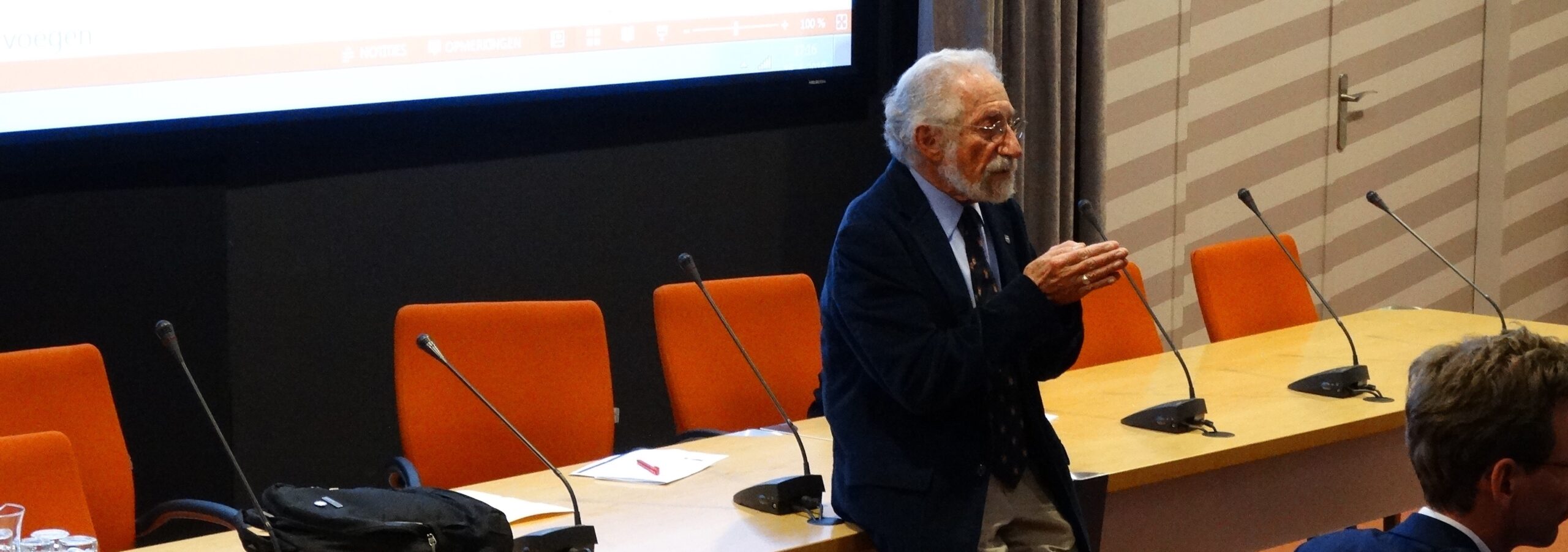On Monday, 16 April 2018, Professor Peter R. Rose (Smith College) gave a lecture on ‘The Stranger at the Gate: The Politics and Morality of US Immigration and Refugee Policy from FDR to Trump.’ The lecture was organized in cooperation with University College Roosevelt in Middelburg.
In his talk, professor Rose reflected on the historical trajectory followed by American immigration and refugee policies. He examined the rise of xenophobic nationalism and populist nativism in the United States as a function of a broader, almost universal struggle between moral imperatives and political exigencies and contingencies. Professor Rose argued that, where politics have been played as a relatively open and multifaceted game, ethnocentric expressions have easily found their space in the public discourse and have allowed the replication of patterns of social exclusion. This has been particularly striking in the US, where, in spite of the famous words at the base of the Statue of Liberty, “Give me your tired, your poor, your huddled masses yearning to breathe free,” acceptance has been less common than exclusion, barriers have been built constantly, and fear of the enemy has usually prevailed over compassion.
Refugees, in particular, according to Professor Rose, have had to wait for too long before getting official recognition of their peculiar status in the United States. The Displaced Persons Act passed in 1948, three years after FDR’s death, and did not explicitly mention the word refugee. The first law to do so was only passed in 1952, and it was heavily affected by the mounting Red Scare. In fact, the law only granted that status to those individuals who were “fleeing communism,” thus revealing the double standards, or the “selective morality” as Professor Rose put it, that the US adopted throughout the Cold War.
To this selective, and merely political approach to the refugee issue, Professor Rose added the relevance played by religious arguments, often presented in terms of apocalyptic clashes of civilizations, where the strangers at the gate have been recurrently depicted as free-riders, a threat to hardworking Americans, and corruptors of a supposedly superior social and political morality. In doing so, Professor Rose placed the most recent developments in American politics in a broader historical perspective that emphasized the continuity of exclusion instead of the alleged role of the USA as a haven for the persecuted.
The event was well attended by local citizens as well as UCR and Ostrea students and the three deans of UCR (Hans Adriaansens, Barbara Oomen, and Bert van den Brink).
The podcast of the lecture is available here.



